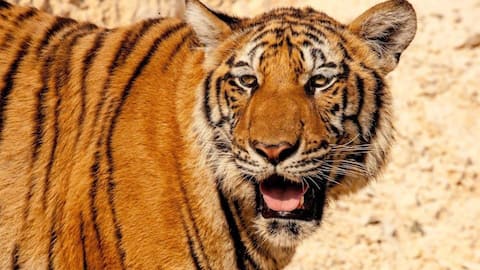Big cats can differentiate human voices, reveals study
What's the story
We all have seen how a cat can differentiate the voices of its owners and that of others. Now, a new study states that their wild cousins such as tigers, cheetahs, and cougars can also distinguish between familiar and unfamiliar human voices. Published in the journal PeerJ Life & Environment, this study indicates that even animals that typically avoid group living possess social skills.
Study
Study conducted on various exotic cat species
The research involved various exotic cat species living in captive settings such as sanctuaries, zoos, and nature preserves. After a pilot study with seven cats from five species, a larger study was conducted with 24 cats of 10 species including lions, tigers, clouded leopards, snow leopards, and servals. The scientists exposed each cat to audio recordings of three unfamiliar human voices followed by a familiar voice and another unfamiliar voice.
Results
Cats respond more to familiar human voices
The team recorded and analyzed the cats' reactions and behaviors in response to each playback. They discovered that regardless of sex or upbringing, the big cats responded more quickly, with greater intensity and for longer durations, to the familiar human voice than to the four unfamiliar voices. Reportedly, the results remained consistent even when lions, known for living in large social groups, were excluded from the analysis.
Characteristics
This is as a result of regular human exposure
Prof Jennifer Vonk of Oakland University, Michigan, who co-authored the study, explained that this ability could be essential for these animals in the wild to recognize their own offspring and monitor their environment. The findings suggest that the ability to recognize individual human voices is not a result of domestication but simply due to regular exposure to humans.
Limitations
Implications of the findings for wild cats
Prof Vonk believes that similar results would likely be found in wild cats if they heard the same human voices frequently enough. However, she acknowledged the limitations in the study, such as the small sample size and all cats being housed in captivity. Vonk concluded, "It suggests that they may not be as aloof and indifferent as they sometimes have the reputation for."
